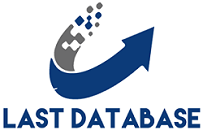Lead generation is crucial for universities to attract potential students and increase enrollment rates. This article explores effective strategies and best practices to maximize lead generation for higher education institutions.
H2: Understanding the Higher Education Market
Identifying Target Audience
H3: Defining Ideal Students
Segment your audience based on demographics (age, location), academic interests, program preferences (undergraduate, graduate), and other relevant factors. Understand the motivations and needs of prospective students to tailor your marketing efforts effectively.
Showcasing University Programs and Features
H3: Highlighting Academic Excellence
Feature your university's academic programs, faculty expertise, campus facilities, student services, and unique selling points. Showcase the benefits of studying at your institution and highlight successful alumni stories to build credibility.
H2: Effective Lead Generation Tactics
Content Marketing
H3: Providing Educational Content
Create content such as blogs, eBooks, webinars, and virtual campus tours that provide insights into university life, academic programs, student experiences, and career opportunities. Position your university as a valuable resource and trusted advisor for prospective students.
Search Engine Optimization (SEO)
H3: Enhancing Online Visibility
Optimize your website and content for keywords related to Phone Number Lists
higher education, specific academic programs, campus life, and student benefits. Improve your search engine rankings to attract organic traffic from prospective students actively researching universities.
Virtual Open Houses or Information Sessions
H3: Engaging Prospective Students
Host virtual open houses, information sessions, or webinars where prospective students can interact with admissions counselors, faculty members, and current students. Provide detailed information about admissions processes, financial aid, and program offerings.
H2: Leveraging Digital Channels
Social Media Engagement
H3: Connecting with Future Students
Utilize platforms like Instagram, Facebook, YouTube, and LinkedIn to showcase campus life, student achievements, university events, and academic updates. Engage with prospective students, answer inquiries, and share user-generated content to build community and trust.
Paid Advertising (PPC)
H3: Targeted Campaigns
Run targeted PPC campaigns on Google Ads, social media platforms, and education-related websites to reach students searching for university programs. Use demographic targeting, retargeting strategies, and geolocation filters to connect with prospective students interested in higher education.
Email Marketing Campaigns
H3: Nurturing Student Relationships

Develop segmented email campaigns to nurture leads through personalized communication. Provide insights into university programs, student testimonials, financial aid options, and application deadlines to keep prospective students engaged and informed.
H2: Conversion and Follow-Up Strategies
User-Friendly Application Process
H3: Optimizing Enrollment Experience
Ensure your university's application process is streamlined, intuitive, and accessible across devices. Provide clear guidance, application checklists, and support to help prospective students navigate the admissions process smoothly.
Alumni and Student Ambassadors
H3: Leveraging Social Proof
Engage alumni and current students as ambassadors to share their university experiences, success stories, and career achievements. Encourage them to participate in virtual panels, mentoring programs, and social media campaigns to attract prospective students.
H2: Measurement and Optimization
Analytics and Performance Tracking
H3: Monitoring Key Metrics
Track KPIs such as website traffic, lead conversion rates, application submissions, and enrollment numbers. Use analytics tools to analyze data, identify trends, and optimize your lead generation strategies based on performance insights.
Continuous Improvement
H3: Iterative Strategies
Continuously test and refine your lead generation tactics based on data-driven insights, student feedback, and market trends. Experiment with new approaches, adapt to changes in student preferences, and optimize campaigns to attract more qualified leads and increase university enrollment.
Conclusion
By implementing these targeted lead generation strategies and leveraging digital marketing channels effectively, universities can attract qualified prospective students, increase applications, and achieve sustainable growth in higher education. Understanding student aspirations, showcasing academic offerings, and delivering personalized engagement are essential for success in building a thriving university brand.
This outline provides a structured approach for developing an article on lead generation strategies specifically tailored for universities. If you need further customization or additional details on specific aspects, feel free to ask!


